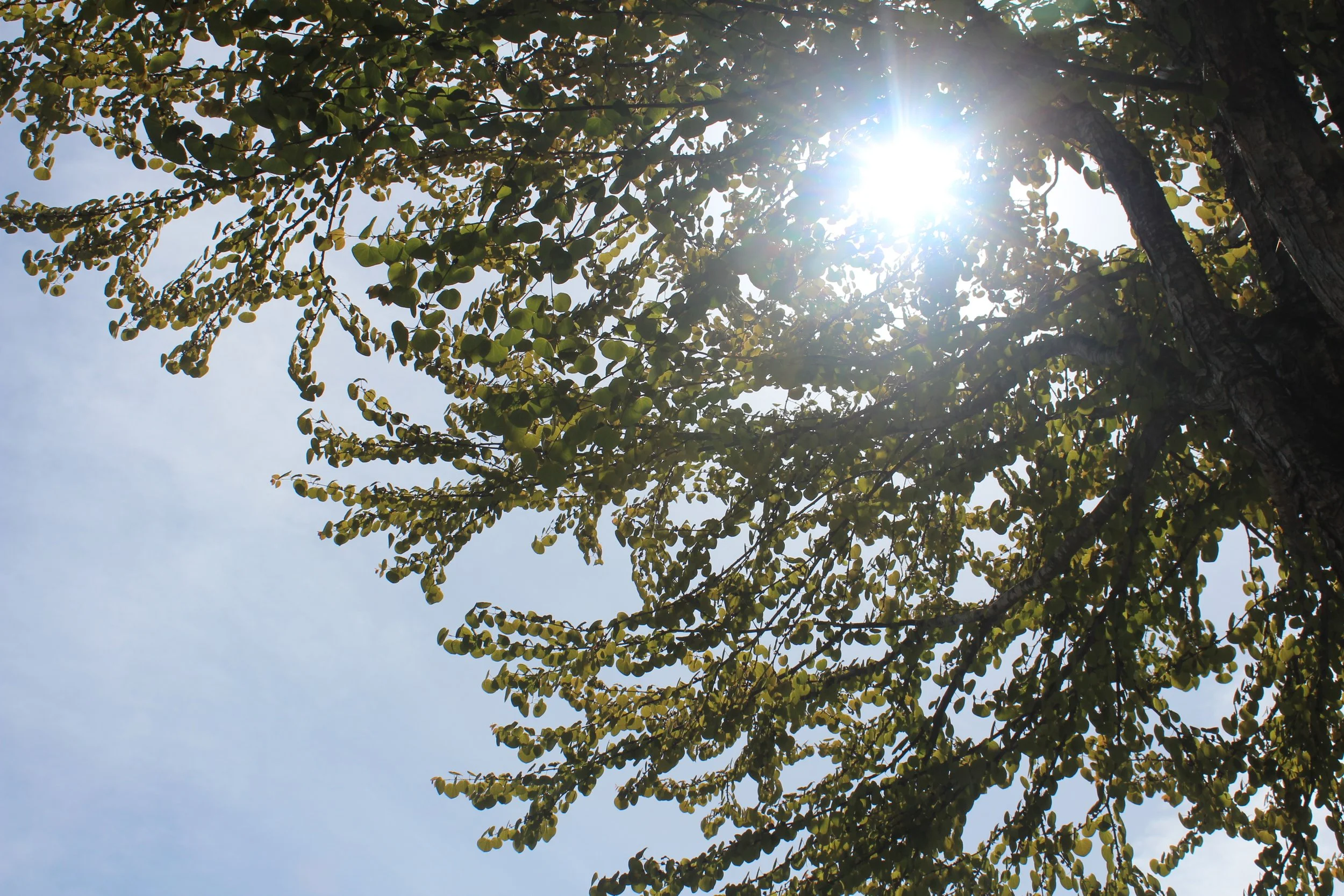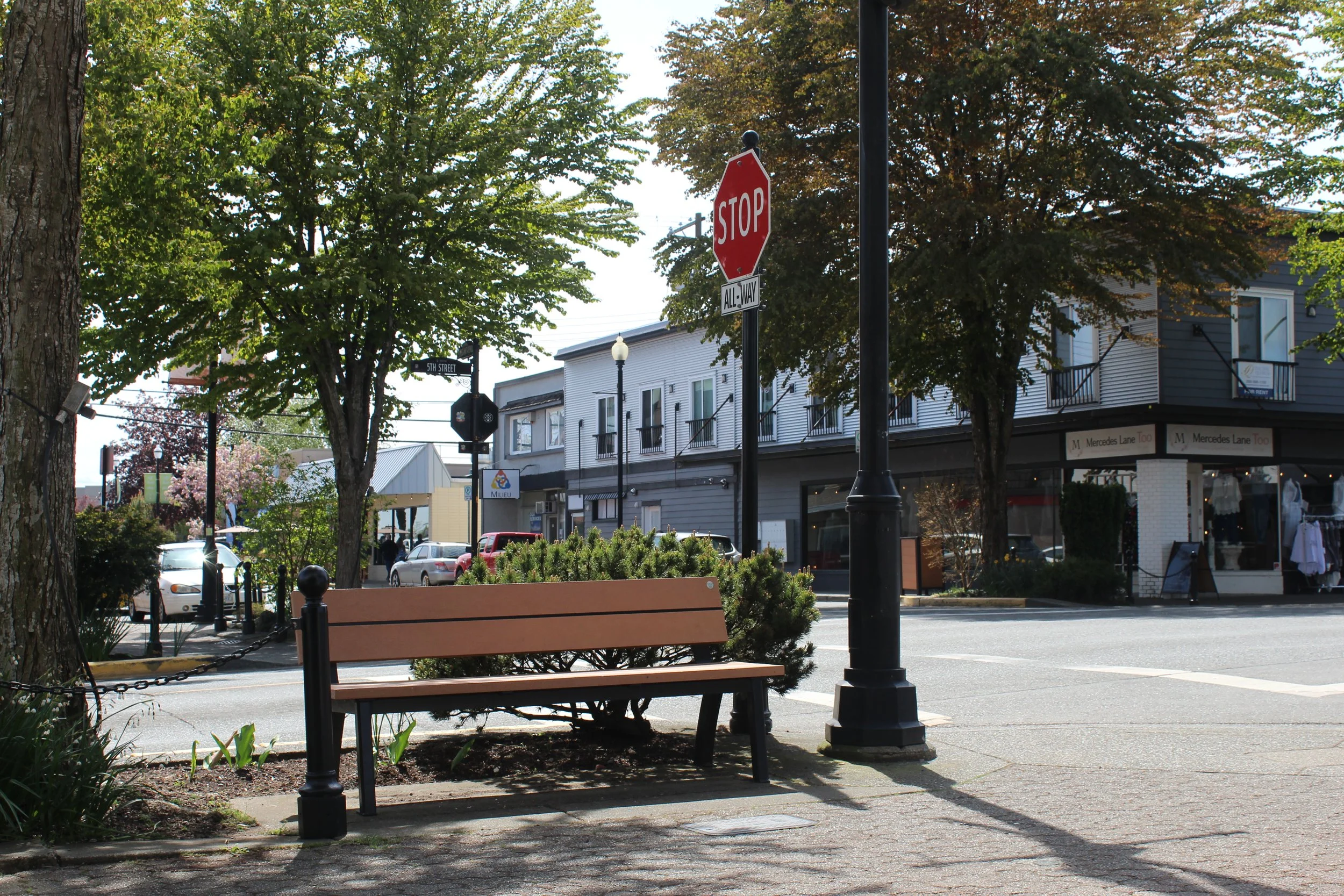Skin safe and sun smart: Skin Cancer Awareness Month reaches Courtenay
Councillor Doug Hillian says the City of Courtenay is prioritizing shade as protection against skin cancer. Photo: Heather Watson / CHLY 101.7 FM
“Skin's the largest organ in your body and it protects you from things. But if you take in too much ultraviolet radiation or UV rays from the sun, it actually damages your skin cells and creates cancer which can spread and not only cause disfiguration, but potentially other more significant symptoms,” said Councillor Doug Hillian.
The City of Courtenay is joining other municipalities across B.C. and Canada in naming May 2025 as Melanoma and Skin Cancer Awareness Month.
City Councillor Doug Hillian has his own personal experience with the cause.
“It's interesting because the mayor asked me to read the proclamation, as he often does with different counselors to share the speaking, but he wasn't aware that I actually have skin cancer. So I think it was an interesting coincidence,” the councillor said.
Hillian explained why it is important for Council to raise awareness about the risks of sun exposure.
“The stat that we read as part of the proclamation was that skin cancer is the most common type of cancer in Canada. And that research shows that one in six Canadians born in the 1990s will develop some form of it in their lifetime. Now, you know, for most people that will be relatively mild and treatable as long as they notice it and catch it early enough. But for others it will develop into the more serious melanoma. And you know, the one in six, those are pretty significant numbers. And I think, as a health issue, it's just another thing that we need to be very aware of and take precautions around,” he said.
Hillian said that while that number is the statistic for individuals born in the ‘90s, he is concerned that for people of his own generation it may be much higher as they may not have known about taking precautions against sun damage growing up.
“I actually grew up in the Okanagan, and I'm in my mid-seventies now. And when I was growing up we went out and soaked up the sun as much as we could, whether we were working or playing, and getting a suntan. People actually put stuff on their skin to make them tan more! Of course, we now know that that isn't the best thing for your skin. So not everybody is gonna be impacted, but there are numbers significant enough that we do need to raise that awareness,” he said.
Councillor Hillian shared his experience with skin cancer and melanoma.
“I was diagnosed about 15 years ago, and it started out with just a simple visit to the doctor's office. ‘What's this little crusty bit of skin on the side of my head here?’ And I remember really clearly being in a doctor's office and the word ‘cancer’ being mentioned. And I thought, ‘my gosh, I'm in a doctor's office and the word cancer has just been mentioned.’ And to him it was very routine because so many people experience different forms of skin cancer,” Hillian reminisced.
“But that started a bit of a journey for me, where I've had several specialist treatments and surgeries to deal with it, and I've had to monitor it on an ongoing basis. So I was pleased that the mayor asked me to read the proclamation, so that I could do my bit to create awareness and encourage people to think about sun safety, and to look out for changes in their skin that might be indications that they have something to be concerned about,” he said.
Councillor Hillian said the City is “building in shade features that give people a place to go to get out of the sun.” Photo: Heather Watson / CHLY 101.7 FM
Councillor Hillian said there are many ways to protect yourself, and that they are all fairly straightforward.
“The basics, which are pretty common sense, are to cover up when the sun is out, and protect your skin as much as possible. And oftentimes we get high cloud[s] that we can't really see the sun, but it's still burning through. And so we've gotta be aware of that. It’s important to wear light coloured, long sleeved shirts and pants and a wide-brimmed hat if in fact you are susceptible to this,” he said. “When you buy sunglasses, make sure that they do provide suitable protection. Try and limit your time in the sun, and be aware of what the UV index is. Of course, use sunscreen, and drink plenty of liquids, stay hydrated.”
Hillian said that while these are measures to protect your skin, there are also things that put it at greater risk.
“Tanning equipment is something that is to be avoided. If you're susceptible to this, they say there's no such thing as a healthy tan, and that tanning equipment actually damages your skin and increases your risk of developing melanoma, which as we've noted is the deadliest form of skin cancer. And you know, if you have crusting or change in the colour or size or shape of a mole or any abnormally dark or discoloured spots or patches on your skin, make sure you go and get that checked out as soon as possible,” he said.
Hillian said that the City of Courtenay is keeping sun exposure, as well as other climate and heat related concerns in mind when planning the City’s outdoor spaces.
“One of the things that we're doing, not only in relation to sun exposure and its effect on the skin, but concern about heat and the impacts of excessive heat with our changing climate: we're developing shade areas, both in terms of trees, but also features and structures in our parks,” he said. “As we redo some of our parks and add to them, we're building in shade features that give people a place to go to get out of the sun. Because we certainly wanna encourage people to keep getting out there playing and enjoying our parks and our beaches, but it's really important that they have places of respite to go to. Particularly children, but everyone, just so people don't get overheated and, you know, the exposure to the sun– they get a bit of a break from it.”
Hillian said that one organization where people can learn more information about preventable health measures, or even contribute to make a difference, is the Save Your Skin Foundation which was started by people fighting their own skin cancer.
“It was founded by a North Vancouver resident named Kathleen Barnard back in 2003 when she had malignant melanoma. And fortunately she did survive with a trial treatment, but through her experience the organization was started, and it's developed as a nationwide patient-led not-for-profit. And they have a lot of helpful resources online.”
The foundation can be found online at saveyourskin.ca for more information and resources to keep you and your loved ones safe this Summer, and year-round.
Funding Note: This story was produced with funding support from the Local Journalism Initiative, administered by the Community Radio Fund of Canada. Reporting done in the Comox Valley is done in partnership with CVOX.


